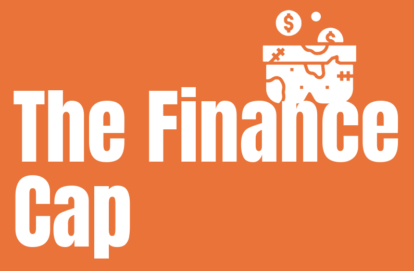5 Goals Everyone Should Have to Achieve Financial Independence
Have you ever dreamed of achieving financial independence—living a life free from financial stress where you’re no longer dependent on a paycheck? For many, financial independence isn’t just about having money; it’s about having the freedom to make choices that align with your passions and values. Whether it’s retiring early, traveling the world, or starting your own business, financial independence gives you the power to design your life on your own terms. In this blog, we’ll explore the top 5 financial goals that everyone should aim for to achieve financial independence.
The idea of financial independence can seem intimidating, especially if you’re just starting out or feel buried in debt. But the good news is, it’s achievable for anyone with the right plan and mindset. It doesn’t happen overnight, but small, consistent steps toward key financial goals can help you build the foundation for lasting financial freedom. These steps don’t require you to earn a six-figure salary or inherit a fortune. Instead, they rely on intentional actions, discipline, and a clear understanding of what’s truly important to you.
Setting financial goals is the first and most crucial step on your journey to financial independence. Think of these goals as a road map. Without them, it’s easy to feel lost or unsure of where to start. The beauty of setting clear financial goals is that they break the overwhelming idea of “financial independence” into manageable, actionable steps. Each goal you achieve gets you closer to living life on your terms, whether that means building an emergency fund, paying off debt, or investing for the future.
The 5 goals below aren’t just arbitrary suggestions—they’re proven steps that have lead me to achieve greater financial security and freedom. You’ll learn how to set up a safety net with an emergency fund, tackle high-interest debt that’s holding you back, build long-term savings for retirement, master budgeting to take control of your spending, and use investing to grow wealth over time.
By focusing on these goals, you’ll not only build a secure financial future but also gain the confidence to make choices without the constant worry about money. So, if you’re ready to take charge of your finances and start working toward a life of financial independence, let’s dive in and discover how you can make it happen with the 5 goals outlined below!
The Top 5 Financial Goals Everyone Should Have

1. Build an Emergency Fund
One of the first and most important steps toward financial independence is creating a solid emergency fund. Life is unpredictable, and unexpected expenses—like medical bills, car repairs, or a sudden job loss—can derail your finances. An emergency fund acts as a safety net, giving you the peace of mind to handle these surprises without relying on credit cards or loans.
How to Build It: Start by aiming for a $1,000 starter emergency fund. Once you’ve achieved that, work toward saving three to six months’ worth of living expenses. This amount will vary based on your lifestyle and monthly expenses, so take the time to calculate what you’d need to cover essentials like rent, utilities, groceries, and insurance.
Pro Tip: Automate your savings. Set up a recurring transfer to a dedicated high-yield savings account so you’re consistently building your fund without thinking about it.
Why It Matters for Financial Independence: An emergency fund prevents you from going into debt when life throws you a curveball, keeping you on track toward your larger goals.
2. Pay Off High-Interest Debt
Debt, especially high-interest credit card debt, is one of the biggest obstacles to financial independence. The longer you carry a balance, the more you’re paying in interest—money that could be better spent building wealth. Paying off this debt is a crucial step in regaining control of your finances.
How to Tackle It:
- Choose a Strategy:
- Avalanche Method: Pay off debts with the highest interest rates first to minimize interest costs.
- Snowball Method: Pay off the smallest debts first for quick wins and motivation.
- Negotiate Rates: Contact your creditors to request a lower interest rate or transfer your balance to a 0% APR credit card.
- Increase Payments: Use extra income from side hustles or cut back on discretionary spending to pay off debt faster.
Pro Tip: If you have multiple credit cards, consolidate them into a personal loan or balance transfer card with a lower interest rate. This simplifies payments and reduces the total interest paid, helping you eliminate debt faster.
Why It Matters for Financial Independence: Carrying debt not only costs you money but also limits your financial flexibility. Eliminating debt frees up your income to focus on saving and investing, bringing you closer to financial freedom.
3. Save for Retirement
Retirement might feel far away, but the earlier you start saving, the easier it will be to achieve financial independence. Compound interest—the phenomenon of earning interest on your interest—works its magic over time, so every dollar you save today has the potential to grow exponentially.
How to Save:
- Maximize Employer Contributions: If your employer offers a 401(k) match, contribute enough to take full advantage of it—it’s essentially free money.
- Open an IRA: Consider a Roth IRA for tax-free growth or a Traditional IRA for upfront tax advantages. My accounts are through Vanguard.
- Increase Contributions Gradually: Start with what you can afford and aim to save at least 15% of your income over time.
Pro Tip: Use a retirement calculator to determine how much you’ll need to save to achieve your goals.
Why It Matters for Financial Independence: Retirement savings provide the foundation for a life free from financial dependency, allowing you to stop working when you choose, not when you have to.
4. Create and Stick to a Budget
Budgeting is the cornerstone of any financial plan. It gives you a clear understanding of where your money is going and ensures you’re directing it toward your priorities rather than letting it slip away unnoticed. A budget isn’t about restriction—it’s about empowerment.
How to Budget:
- Choose a System: Popular methods include the 50/30/20 rule, zero-based budgeting, or using budgeting apps like Mint or YNAB.
- Track Your Spending: Monitor your expenses to identify areas where you can cut back and redirect funds toward your goals.
- Adjust Regularly: Review your budget monthly to account for changes in income or expenses.
Pro Tip: Incorporate a “fun money” category in your budget to give yourself permission to spend on small indulgences. This helps prevent feelings of deprivation and makes budgeting sustainable in the long run.
Why It Matters for Financial Independence: A well-crafted budget ensures you’re living within your means and saving consistently. It’s the road map that keeps you moving toward financial independence, one step at a time.
5. Start Investing to Build Wealth
If saving helps you stay afloat, investing helps you thrive. Investing is the key to building wealth and achieving financial independence. Over time, the returns from investments can far outpace what you’d earn from savings alone, helping your money grow exponentially.
How to Start Investing:
- Start Small: Begin with as little as $50 or $100 per month.
- Diversify Your Portfolio: Invest in low-cost index funds or ETFs to spread your risk.
- Automate Your Investments: Use robo-advisors or set up recurring contributions to your brokerage account.
- Stay Consistent: Invest regularly, regardless of market fluctuations, to benefit from dollar-cost averaging.
Pro Tip: Reinvest dividends to maximize the power of compound growth.
Why It Matters for Financial Independence: Investing creates passive income streams that allow your money to work for you, reducing your reliance on active income and helping you reach financial independence faster.
Final Thoughts On How to Become Financially Independent
Achieving financial independence is a journey, not an overnight transformation. It requires focus, discipline, and a commitment to setting and achieving financial goals. By building an emergency fund, paying off high-interest debt, saving for retirement, creating a budget, and investing wisely, you’re laying the foundation for a secure and fulfilling financial future.
Remember, the path to financial independence looks different for everyone. You don’t need to tackle all these goals at once—start with one or two that align with your current situation and build momentum from there. The key is consistency. Small, intentional steps taken over time add up to significant progress.
As you work toward these goals, celebrate your milestones. Each step you take—whether it’s saving your first $1,000, paying off a credit card, or seeing your investments grow—is a testament to your hard work and dedication. Financial independence isn’t just about having money—it’s about having the freedom to live life on your own terms.
Take the first step today. Whether it’s setting up an automatic transfer to your emergency fund, creating a budget, or opening an investment account, every action you take brings you closer to the life you’ve always envisioned. With the right plan and mindset, financial independence is within your reach. Let’s make it happen!
